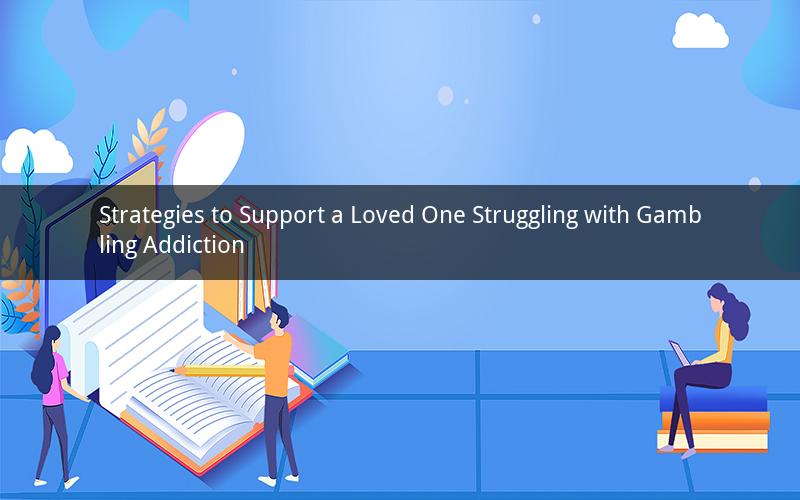
Gambling addiction is a complex issue that affects millions of individuals worldwide. It is characterized by an inability to control gambling behavior, leading to significant financial, emotional, and social consequences. If you have a loved one who is struggling with gambling addiction, it's crucial to understand the dynamics of the problem and how to provide effective support. This article delves into various strategies to help someone who is addicted to gambling, offering guidance and advice for those seeking to assist their loved ones in overcoming this challenging addiction.
Understanding Gambling Addiction
Before delving into the strategies for supporting a gambling addict, it's essential to understand the nature of the addiction. Gambling addiction is a form of impulse control disorder, often accompanied by a psychological and emotional component. Individuals with gambling addiction may experience intense cravings, the need for increased stakes, and a desire to chase losses. They may also exhibit signs of denial, rationalization, and a preoccupation with gambling.
1. Encourage Open Communication
The first step in supporting a loved one with gambling addiction is to establish open and honest communication. This involves creating a safe and non-judgmental environment where they can express their feelings and concerns without fear of criticism or rejection. Here are some tips for fostering open communication:
- Listen actively: Pay close attention to what your loved one is saying and avoid interrupting or offering unsolicited advice.
- Validate their feelings: Acknowledge their struggles and let them know that you understand the pain and difficulty they are experiencing.
- Avoid confrontation: Refrain from arguing or confronting them about their gambling behavior, as this may lead to defensiveness and resistance.
2. Educate Yourself on Gambling Addiction
Educating yourself about gambling addiction can help you better understand the challenges your loved one is facing. This knowledge can also empower you to offer more effective support. Consider the following resources:
- Attend support group meetings: Many organizations offer support groups for individuals affected by gambling addiction, including family and friends.
- Read books and articles: Look for reputable sources that provide information on gambling addiction, treatment options, and recovery strategies.
- Seek professional advice: Consult with a therapist or counselor specializing in gambling addiction to gain insights and guidance.
3. Encourage Professional Help
Seeking professional help is a crucial step in overcoming gambling addiction. Therapists, counselors, and addiction specialists can provide tailored support and treatment options. Here's how you can encourage your loved one to seek professional help:
- Suggest therapy: Recommend that they attend individual or group therapy sessions to address the underlying issues contributing to their addiction.
- Research treatment options: Help them explore various treatment programs, including inpatient and outpatient rehabilitation centers.
- Offer transportation: If they are hesitant to attend appointments, offer to drive them to and from therapy sessions.
4. Support the Recovery Process
Supporting a loved one through the recovery process is essential for their success. Here are some ways to provide support:
- Encourage participation in support groups: Many individuals find strength and encouragement through support groups for gambling addicts and their families.
- Attend family therapy: Family therapy can help address the impact of gambling addiction on the family unit and promote healing.
- Provide emotional support: Be there for your loved one during their recovery journey, offering empathy, understanding, and encouragement.
5. Set Boundaries and Create a Safe Environment
Setting boundaries and creating a safe environment can help prevent relapse and support your loved one's recovery. Consider the following tips:
- Establish financial boundaries: Work together to create a budget and set financial limits to prevent access to gambling funds.
- Monitor their activities: Keep an eye on their spending and social activities to ensure they are not engaging in risky behaviors.
- Encourage healthy habits: Encourage your loved one to adopt healthy habits, such as exercise, hobbies, and socializing with non-gambling friends.
Frequently Asked Questions
1. Q: How can I tell if my loved one has a gambling addiction?
A: Look for signs such as preoccupation with gambling, hiding gambling activities, increased financial problems, and neglecting responsibilities.
2. Q: Can I force my loved one to seek help for their gambling addiction?
A: While you can encourage them to seek help, you cannot force them. It's essential to approach the situation with empathy and support rather than confrontation.
3. Q: What if my loved one refuses to seek help?
A: If your loved one refuses to seek help, continue to offer support and resources. Be patient and persistent, but also be prepared to set boundaries to protect yourself and your family.
4. Q: How long does it take to recover from a gambling addiction?
A: Recovery from gambling addiction is a long-term process. Some individuals may experience relapses, but with continued support and treatment, they can overcome their addiction.
5. Q: Can I help my loved one recover from a gambling addiction on my own?
A: While you can provide significant support, it's essential to recognize that professional help is crucial for overcoming gambling addiction. Encourage your loved one to seek therapy and support groups to enhance their recovery journey.